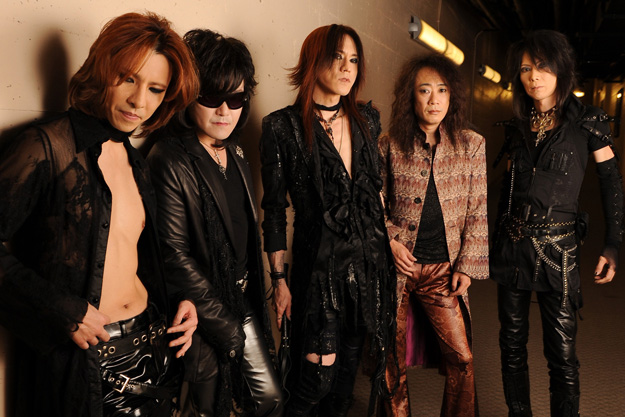On the 4th of March, a motley collection of Japanophiles, Metal Heads, and Japanese expats gathered at Wembley Arena to see the biggest band in the world you’ve never heard of: X Japan. They’ve sold over 30 million records, pioneered a genre – Visual Kei, Japan’s answer to glam rock – and they’ve collaborated with the London Philharmonic Orchestra, Beatles producers, experimented like few bands have dared to, split in 1997, and reformed in 2007. Now, 25 years after band lead Yoshiki Hayashi moved to California, they’re trying to make it big in the West, a move few foreign language bands have managed.
X Japan have an insane history. Yoshiki, the lead songwriter is, rarely for a rock band, the drummer. He’s also a concert pianist, and when X Japan collaborated with the London Philharmonic, it wasn’t for a gimmick concert, he had the chops to write for them. The result was 1993’s Art of Life, a 29 minute orchestral rock song that topped the Japanese charts. It’s a testament to their range had skill. X Japan had all the 80s and 90s tropes rolled into one vicious package, endearing them to a generation of Japan with Beatlemania levels of devotion. They combined the speed and aggression of Thrash Metal, the excess of Glam, the sheer flamboyant sincerity of 80s pop, and the existential suffering of Grunge.
This unfortunately brings us to Hideto Matsumoto. Hide, the former lead guitarist, was found dead in his Tokyo apart in 1998 during the band’s hiatus, lying strangled on a towel tied to his door handle, and highly inebriated. The police ruled suicide, a conclusion his band mates have rejected. They think he was likely trying back exercises to alleviate the pain from constant guitar playing, and slipped while inebriated. Within a week, three fans had committed suicide, some in copy suicides, two more tried, and 50,000 people attended his funeral.
It wasn’t the first time death would haunt the band, nor the last. Yoshiki lost his father to suicide when he was just ten, and in 2011 X Japan lost another former member when Taiji, their former bassist, also committed suicide. In Yoshiki, it has renewed a desire to play across the world, to bring the world the legacy of his musical family, and to make them the band they’d always dreamed of being. Off stage, Yoshiki strikes as a shy figure, but onstage he pours out all the grief and his rage through his aggressive drumming, and poignant ballads. He is a man who would lift himself and his friends to the greatest stages of the world.
This brings an unfortunate truth. English speaking audiences are notoriously unforgiving to foreign language music. Big Bang! are one of the few foreign language bands that can tour to large audiences in the west. Rammstein too have achieved it, but they are exceptions to the rule. While most countries enjoy popular music in their native language, and in English, and in languages from neighbouring countries, the English speaking West largely relegates foreign language artists to one hit wonders and comic relief. Think ‘Gangnam Style’, ’99 Luftballons’, and ‘Trololol’.
X Japan have done a fair bit of work in English, but, their accents are so thick it is often indistinguishable from their Japanese. It’s a shame, because their Japanese lyrics are one of their greatest strengths. Most consonants in Japanese have to have a vowel attached to them, which when sung, creates a rapid ‘raka-taka’ sound, which is well suited to Rock. Ironically, Wembley’s crowd seemed to find it easier to sing along to Japanese language hits such as ‘Kurenai’ and ‘Rusty Nail’ than to their English tracks.
London’s concert was an audacious one. Having played only once in Britain, at the 2,000 capacity Shepherd’s Bush Empire, they came close to filling out the 12,500 capacity Wembley Arena. The crowd was wild, and diverse. Diverse enough that, if their next album is good enough, and popular enough, they might just be the next big thing in Western Rock.
Watch this space.
Edmund Goldrick
(Image: Loudwick)

